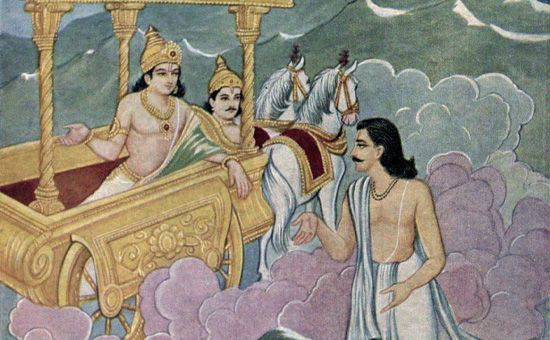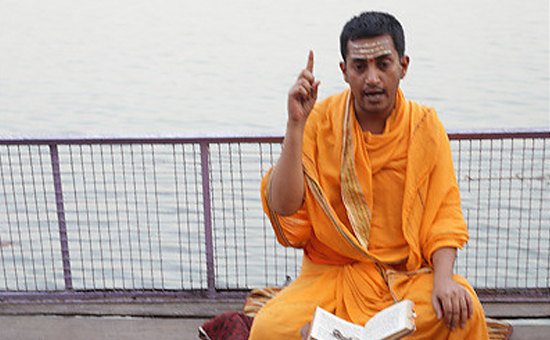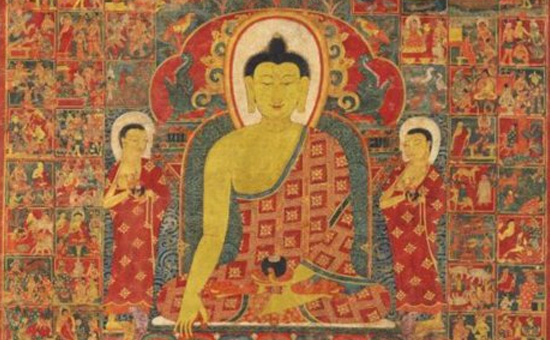-
This part has Do not wait for tomorrow, The
Strange Prophecy and Know the Value of Money.
Part One
covered Guru, significance of Ganga Saptami and Sambaji Maharaj and son of
Shivaji. Part Two covered Mohini Avatar, Tiger stories Ayyappa and Mother’s Day. Part Three
tells you stories of Kamadhenu, Sita Navami and Narasimha Jayanti. Part Four is
about Buddha Purnima, Athithi Devo Bhava and Tenzing Norgay. Part Five
is about destiny-how karmas can alter it, animal sacrifice and the power of
surrender.
Why did I start writing these Stories? As a mother of three I have realized
that many children are deprived of hearing tales that are Indian in origin.
This could be for various reasons, an important one being that parents themselves
do not know these tales.
The desire to learn English and about
Western Nations meant that atleast two generations were fed tales from the West
namely Sleeping Beauty, Cinderella, etc. Because of this when you ask a child
to write an essay of their favourite character they will write about Santa
Claus and Snow White but not Shivaji.
So I took it upon myself to write short stories about India’s cultural heritage. The stories have been written in such a way that they can be read to children. At the same time I added snippets of our culture, rituals, shlokas, food, etc. so that children get to know about them. Must add that these stories are not meant to be scholarly pieces of work.
 Yudhishthir in a scene from Mahabharata.
Yudhishthir in a scene from Mahabharata.
DO NOT WAIT FOR TOMORROW
Kaal Kare So
Aaj Kar, Aaj Kare So Ub
Pal Mein Pralaya Hoyegi, Bahuri Karoge Kub
Kabir Das ji says, “Do Today what you plan to do Tomorrow, Do Just Now what you plan to do Today” … he further warns that a flood could happen in a moment and your life could turn upside down and what would you be able to do then?
Such a deep teaching in such simple words! We must not procrastinate (put away for later) whatever work we have to do. Do it as soon as possible, because once you get into the habit of saying “Tomorrow”, the “Tomorrow NEVER comes.”
There is a short story in the
Mahabharata where Bhima teaches Yudhishthir a lesson about this.
After the war was over, Yudhishthir took over as the king of Indraprasta. He was a very good king and the people were very happy. One day, a poor peasant came to the court and asked him for help, because he was in distress. Since Yudhishthir had a very tiring day that day, he felt that he could listen to the poor farmer’s woes the next day. He told the farmer, “I will solve your problem tomorrow. Come to court tomorrow.”
Bhima heard this. Immediately he ran to the gate of the Palace to the huge bell which was hung. (Note: A huge bell would be hung on the gates of the main Palaces so that anyone who wanted to draw the attention of the king to his/her problems could ring it and get an immediate audience with the king.) He started ringing the bell deliriously (like a mad man). He started shouting, “Yudhishthir has conquered Death.”
Yudhishthir heard the noise and came out to the gate. He told Bhima to stop ringing the bell and asked him how he came to the conclusion that Yudhishthir had conquered death. Bhima told him, “Bhaiyya everyone knows that you never lie. Today you asked a distressed farmer to come to the court tomorrow and promised him that you would solve the problem tomorrow. How could you have done that, unless you have conquered death?”
Yudhishthir was stunned. He realized his
mistake, called the farmer back to the palace immediately and made arrangements
to solve his crisis. Bhima smiled. He knew that one could become a successful
person only if one never procrastinated.
 Brahmin.
Brahmin.
THE STRANGE PROPHECY
Long ago there was a great Sage in the
city of Varanasi. His name was Senaka. In a nearby village there lived a
Brahmin who used to collect alms for his everyday needs. (NOTE: Those days
Brahmins lived only on dakshina – the amount contributed for teaching students or for performing any religious service like a Puja or a Yagya or such. They couldn’t specifically mention any amount as their ‘fees’. Whatever was given to them was accepted. A poor person would give only fruits or vegetables, a richer person would give some money. Sometimes when there was no scope for receiving dakshina – those days, the Brahmin would have to ask for grains or coconut from a specified number of houses – could be one or up to 5 houses, depending on his vow.)
While returning home through a forest, he heard a mysterious voice saying, “O Brahmin, if you do not go home today, you will die. If you go home, your wife will die.”
The Brahmin was in a quandary. He could not figure out where the voice came from or who said it. He realized that it could be a Yaksha or the forest God. He was also afraid of what would happen – whether he would die or his wife … he loved his own life and he also loved his wife. He wanted neither to die. But he could neither stay there, nor go home. What was he to do?
He started wandering aimlessly and reached
the city where he saw the Sage Senaka in a Satsang. When the Satsang got over,
he ran to the Sage and fell on his feet. Senaka asked him gently as to what had
happened.
The Brahmin burst into tears and told the Sage about the voice and the prophecy. Senaka asked him, “What were you doing just before you heard the voice?” The Brahmin thought for a minute and replied, “I was eating my food.” The Sage asked him, “Did you drink water after that? Where did you get the water from?” The Brahmin replied, “I had not carried any water today, so I went to the nearby stream to drink water from there.” “Hmmm … did you take your bag with you when you went to drink the water?” the Sage asked. The Brahmin replied, “No.” Then the Sage asked a strange question, “Did you look into the bag before shutting it, picking it and carrying it with you again?” The Brahmin replied in the negative again.
Now the Sage thought for a minute and
then called for a snake charmer. When the snake charmer arrived, he was given
the bag. Slowly he opened the bag and lo! Out came a deadly cobra! The snake
charmer caught it and the Sage told him to leave it in the forest again.
Then he turned to the Brahmin and said, “When you had gone to get water, the snake had entered your bag. The forest God saw this and realized that if you would not go home soon, you would feel hungry again and put your hand inside the bag. You would have been bitten by the snake. But if you would have gone home immediately, your wife would have opened the bag to see what you had brought home. Then she would have been bitten by the snake. That is why the voice gave that prophecy.”
The Brahmin was grateful to the Sage for
having saved him and his wife. He once again fell at the feet of Senaka, took
his blessings and went home.
 Story from Buddha Jataka tales.
Story from Buddha Jataka tales.
KNOW THE VALUE OF MONEY
Shridhar was a very lazy boy. Although he had finished his studies with good grades, he never wanted to take up a job. He thought that his parents were so wealthy that they could feed him forever. He also felt that that money was useful only if spent – what was the use of keeping the money in the bank or in lockers? One should spend money and enjoy.
Shridhar’s father was very upset with his behaviour and tried to tell him many times to earn a living. Once Shridhar got fed up of his nagging and told his father, “Dad I’m so intelligent that I can get a job any time I want to.” His Dad agreed with him and told him, “Theekh hai beta, you just do one thing. Earn one day’s salary and put it in my hand at the end of the day. And do this for 1 week … if you do so, I will agree with you that you are intelligent and can get a job anytime you want to. If you do not manage to do that, you will look for a proper job or join me in business.” Shridhar agreed to the condition.
On the first day Shridhar wasted his
time but at the end of the day, he found his purse with a lot of money. He took
the money to his dad and told him that he had earned it. His dad took the money
and tore it up. Shridhar was surprised but kept quiet.
Next day Shridhar again wasted his time
and this time, he took money from his mother and gave it to his father. Again,
his father destroyed the notes. Shridhar got upset but he kept quiet.
On the third day Shridhar went out with
his friends to enjoy and at the end of the day, he borrowed some money from one
of his friends and gave it to his father saying that it was his hard earned
income. Again, his father destroyed the notes. Shridhar got annoyed but again
he kept quiet.
On the fourth day, Shridhar slept the whole day, then went out for some recreational activities and this time, he again borrowed from his friends. This time his friends were reluctant to give him money and all of them gave him small amounts. Together he collected the money and gave it to his father. This time when his father destroyed the money, he asked, “Why are you destroying the money?” His father said, “Simply” and smiled.
On the fifth day, Shridhar again whiled away his time but at the end of the day, he could not collect any money. He went home and told his father that he would give the money the next day, since his employer did not pay him a salary that day. Seeing his downcast face, his father agreed but said, “Don’t forget what you agreed upon.”
On the sixth day, Shridhar knew that if he did not work that day, his father would not keep quiet. So he looked for a job and found one as a salesperson in a shop. The whole day he was on his feet and by the time it was time to close the shop, he was tired and hungry. Still he took his day’s salary and went home and gave it to his dad first. This time when his father was about to destroy the notes, he screamed, “Do you know how much I had to work to get that money? You think it is a joke to destroy money like that?”
His father embraced him and said, “Today for the first time you worked for your money. I am proud of you because you have learnt the value of money today. You have realized that your family, your friends can help you for some days … but when it is for a lifetime, you have to earn your own living.”
Shridhar fell at the feet of his father
and agreed to join him in his business from the next day. His father put
forward the condition that Shridhar would have to toil initially as a worker,
but having learnt his lesson Shridhar readily agreed.
Author is a mother to three children and writes on Spirituality, Women
Empowerment and National Affairs. Her articles are published on
Indusscrolls.com amongst others. She believes in the cause of the Indian Breed
of Cows and is a follower of Shree Ramachandrapura Matha, Karnataka.